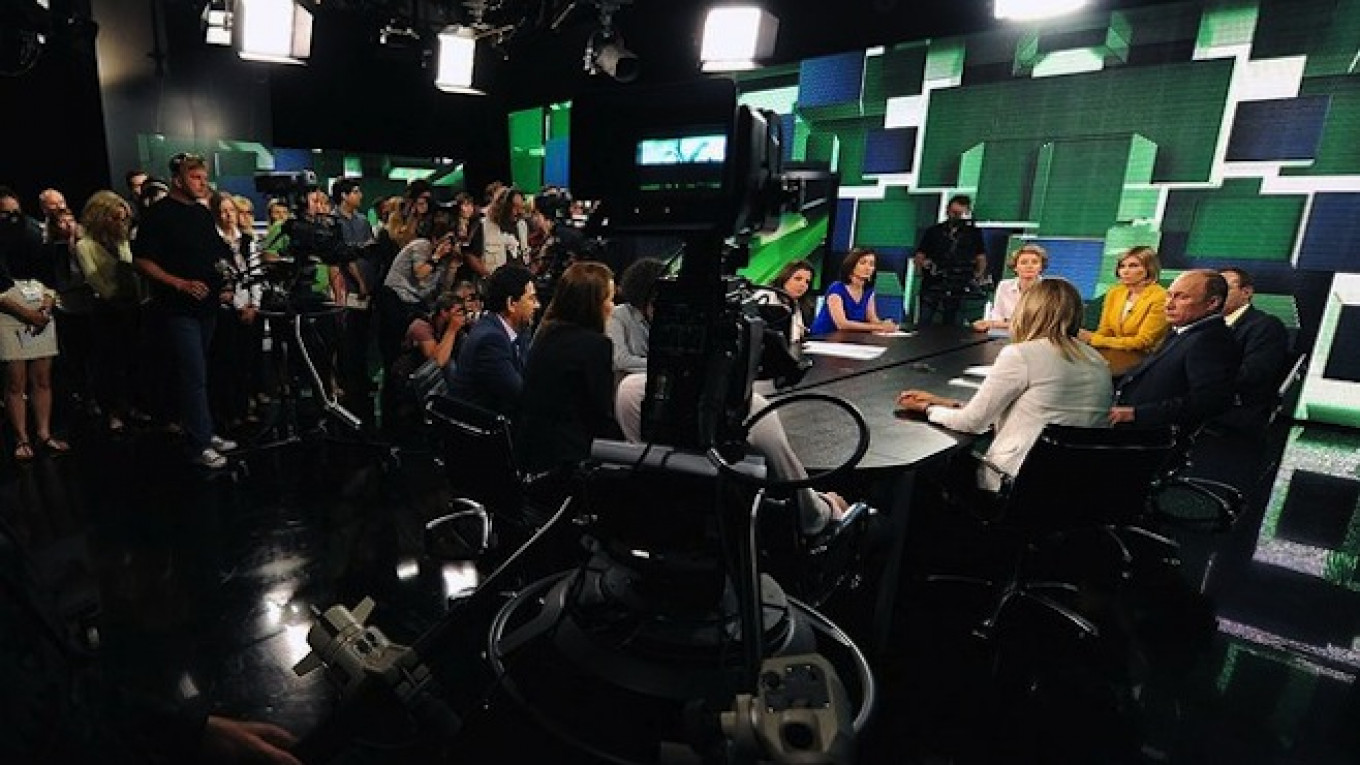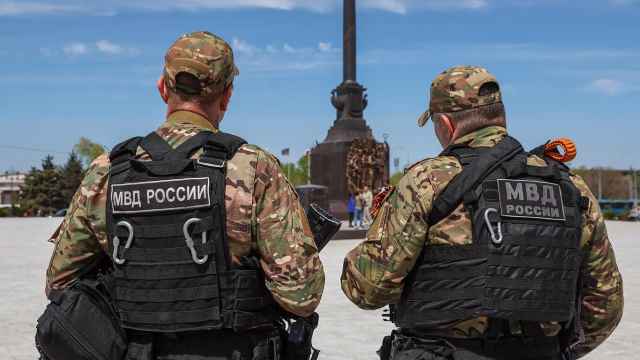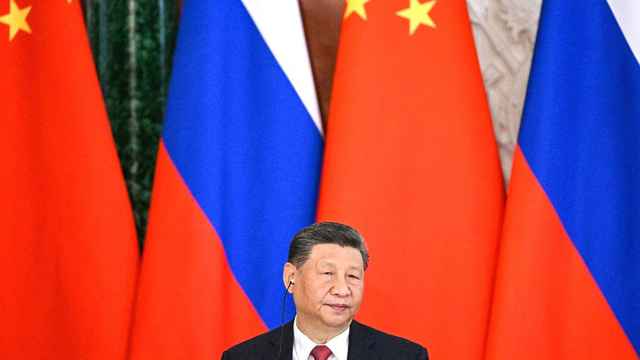Britain's media regulator has threatened to bring sanctions against Russian state-run broadcaster RT after ruling that it breached U.K. codes on impartiality in several of its newscasts on Ukraine.
In particular, the Ofcom regulator highlighted four RT reports that aired in the run-up to Moscow's annexation of Crimea in March that criticized the Ukrainian government as illegitimate, having links to neo-Nazis, and intent on pursuing anti-Russian policies — without any substantial indication of Kiev's views on the events.
British regulations, by which all broadcasters must comply, require "due impartiality" in news reporting, though not necessarily equal air time for all relevant parties. The issue is particularly important "when reporting on matters of major political controversy," Ofcom said in a bulletin released Monday.
Ofcom warned that any further breaches of broadcast regulations by RT could result in punitive measures, including a possible "statutory sanction." The measure could mean a fine or, in an extreme case, withdrawal of its broadcasting license.
RT, which casts itself as a network that seeks "to challenge established Western views" by presenting the "Russian viewpoint," did not specifically respond to Ofcom's criticism after the bulletin was released.
The network's editor-in-chief Margarita Simonyan told the BBC Russian Service that "RT has always considered its main task to comprehensively and objectively inform audiences about events around the world."
"We look forward to Ofcom applying today's ruling impartially to all broadcasters reporting on any government, irrespective of its political leaning," she told British newspaper The Guardian.
In its correspondence with Ofcom, RT argued that it considered the Ukrainian government — which assumed power after the previous pro-Moscow president was overthrown — to be illegitimate and therefore its views were insignificant, according to excerpts from the correspondence cited in Ofcom's report.
Ofcom said that it "has no view" on the Ukrainian government's legitimacy, but that the administration was a significant party in the events and its position deserved coverage.
"The interim Ukrainian government, being the de-facto government of Ukraine at that time and claiming to represent the views of the majority of Ukrainians, had a viewpoint on these matters which clearly in Ofcom's opinion was a significant view," the regulator said.
"We therefore considered that to ensure that the news about the political crisis in Ukraine was presented with due impartiality, that viewpoint needed to be reflected, and reflected appropriately."
In one of the reports reviewed by Ofcom — a newscast that aired on March 5 — an RT reporter said the "new masters of Ukraine, doing what they want," included the neo-Nazi group Patriots of Ukraine and suggested that associates of the organization had links to Kiev's new administration.
While Russian officials have claimed that Moscow annexed Crimea to protect the peninsula's Russian speakers from supposed "fascists" in Kiev, neither Patriots of Ukraine nor another nationalist group, Right Sector, had any members in Ukraine's government.
"By linking the extreme views of the Patriots of Ukraine with the interim Ukrainian government, the likely effect on viewers would have been to suggest that these extreme views were representative of the interim Ukrainian government as a whole," Ofcom said in its review.
Ofcom also refused to accept the broadcaster's response that "RT journalists might reasonably have been reluctant to seek an alternative viewpoint" in its report, saying it "did not consider this was a relevant consideration."
"This was because the relevant viewpoint that needed to be reflected was not that of the extreme groups, such as the Patriots of Ukraine. Rather it was the viewpoint of the interim government of Ukraine, of which the Patriots of Ukraine were not a part," Ofcom said.
The claims by Russian state-run television of widespread "fascism" in Ukraine have become slightly more subdued after the main ultranationalist candidate in May's presidential election, Right Sector head Dmytro Yarosh, received less than 1 percent of the vote.
Contact the author at [email protected]
A Message from The Moscow Times:
Dear readers,
We are facing unprecedented challenges. Russia's Prosecutor General's Office has designated The Moscow Times as an "undesirable" organization, criminalizing our work and putting our staff at risk of prosecution. This follows our earlier unjust labeling as a "foreign agent."
These actions are direct attempts to silence independent journalism in Russia. The authorities claim our work "discredits the decisions of the Russian leadership." We see things differently: we strive to provide accurate, unbiased reporting on Russia.
We, the journalists of The Moscow Times, refuse to be silenced. But to continue our work, we need your help.
Your support, no matter how small, makes a world of difference. If you can, please support us monthly starting from just $2. It's quick to set up, and every contribution makes a significant impact.
By supporting The Moscow Times, you're defending open, independent journalism in the face of repression. Thank you for standing with us.
Remind me later.






